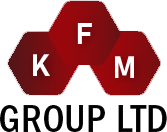Health and Safety Policy Statement
Health and Safety Policy
- Introduction This Health and Safety Policy sets out FKM GROUP LTD’s commitment to achieving and maintaining the highest standards of health, safety, and welfare for all employees, contractors, visitors, and others who may be affected by our operations. It is issued in accordance with the Health and Safety at Work etc. Act 1974 and its associated regulations and guidance, and binds all Directors, Managers, and Employees in the interest of safety and legal compliance.
The Company will take all reasonably practicable steps to ensure a safe and healthy working environment, preventing injury and ill health. This includes compliance with all relevant statutory duties and industry best practices. The policy will be reviewed annually and updated as required.
- Health and Safety Responsibilities
- Directors: Ensure overall strategic direction and resources for health and safety are in place.
- Managers/Supervisors: Implement safety procedures and monitor compliance.
- Employees: Follow safety procedures and report hazards immediately.
- Health and Safety Officer: Coordinates audits, training, and investigations; advises on compliance.
- Consultation Consultation with employees on health and safety matters takes place through the Safety Management Committee. Employees are encouraged to raise concerns with their Supervisor or Operations Manager. If unresolved, the matter can be escalated to the Health and Safety Committee in writing. If resolution is still not achieved, a meeting with the relevant Manager will be arranged, and unresolved issues will be discussed at the next Safety Management Committee meeting.
- Planning and Control The Company Health and Safety Plan identifies priorities including:
- Risk Assessments.
- Health and Safety Training.
- Control measures.
- Monitoring and performance measurement.
- Policy and procedure review.
- Internal auditing.
- Dissemination of safety information.
- Promoting a positive safety culture.
- Specific Policies and Procedures
- COSHH: Compliance with the Control of Substances Hazardous to Health Regulations 2002. No new chemical is introduced without prior assessment. Officers should treat all unknown substances with caution.
- Display Screen Equipment (DSE): Assessments carried out in line with the Health and Safety (Display Screen Equipment) Regulations 1992.
- Personal Protective Equipment (PPE): Provided as per risk assessments and maintained in accordance with the Personal Protective Equipment at Work Regulations 2022.
- Manual Handling: Safe Systems of Work provided under the Manual Handling Operations Regulations 1992.
- Fire Safety: Fire prevention and evacuation procedures are in place, aligned with the Regulatory Reform (Fire Safety) Order 2005.
- Control of Contractors: Permits to work required. Contractors must comply with company safety policies.
- Violence Against Staff: Clear procedures in place to deal with threats or assaults.
- Lone Working: Controlled under the Lone Working Policy. Risk assessments and communication measures are essential.
- Accident/Incident Investigation: Investigations comply with the Reporting of Injuries, Diseases and Dangerous Occurrences Regulations (RIDDOR) 2013.
- Working Time: Compliant with the Working Time Regulations 1998 (as amended). No employee works more than 48 hours unless they opt out in writing.
- Workplace (Health, Safety and Welfare) Regulations 1992: Full compliance with provisions for ventilation, temperature, lighting, and cleanliness.
- Smoke-Free Workplace: Aligned with the Health Act 2006. Smoking and vaping prohibited in all enclosed spaces.
- Welfare Facilities Adequate welfare facilities are provided on site and at offices, including access to toilets, rest areas, and drinking water.
- Mobile Phone Use Use of mobile phones while on duty or moving through sites is prohibited unless in a designated safe area. This reduces distraction-related risks.
- Alcohol and Drug Policy Employees are not permitted to work under the influence of alcohol, illegal drugs, or misused medication. Any prescription drug that could affect performance must be reported to a Line Manager.
-
Driving and Working Hours
- Max 11 working/driving hours in 24 hours.
- Max 9 driving hours.
- Minimum 15-minute break every 2 hours of driving.
- Work patterns must avoid fatigue.
- Accident Reporting and Investigation All incidents must be reported immediately and formally documented within 48 hours. Reports should be submitted to HR and the Safety Management Committee. An impartial investigation will determine if safety rules were breached. Avoidable accidents may result in disciplinary action.
Accident Procedure
- Inform Control immediately.
- Log the incident.
- Complete on-site report and accident book.
- Notify your Manager.
- Submit documents to the Operations Director.
- Eye Tests (DSE Users) Free eye tests and appropriate corrective eyewear are provided for DSE users as per the DSE Regulations.
- Criminal Injury Support The HR Manager supports staff in submitting claims to the Criminal Injuries Compensation Authority following assaults at work.
- Vehicle Maintenance Drivers and the Company share responsibility for vehicle roadworthiness under the Road Traffic Act and HSE guidance. Employees must:
- Complete daily/weekly checks.
- Report defects to the Operations Manager.
- Maintain check logs in the vehicle and submit copies weekly.
- Disciplinary Action Failure to meet safety standards will result in formal disciplinary action, recorded and reflected in the annual appraisal.
- Review of the Policy This Policy is reviewed annually and amended as required by changes in law, operations, or risk assessments. All staff will be informed of updates and are required to adhere to the most recent version.

